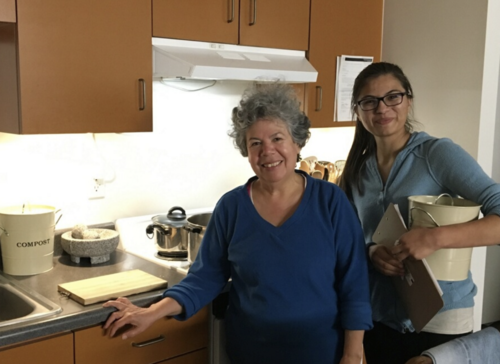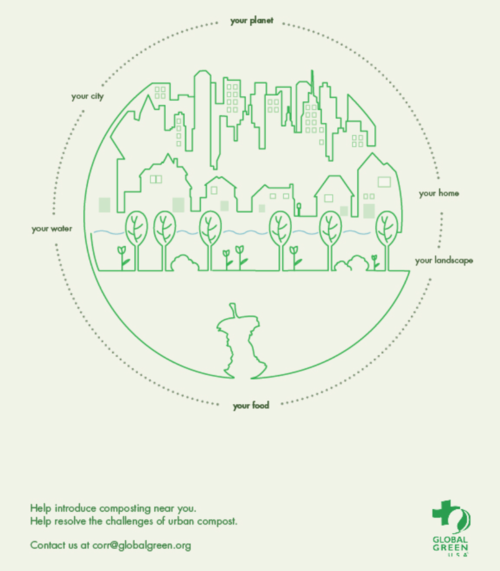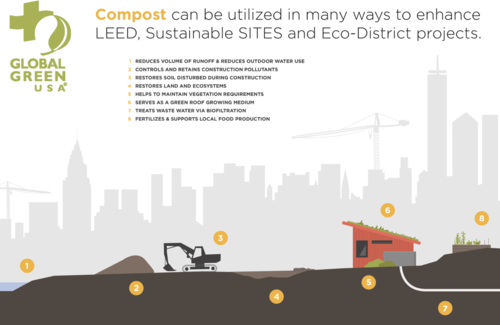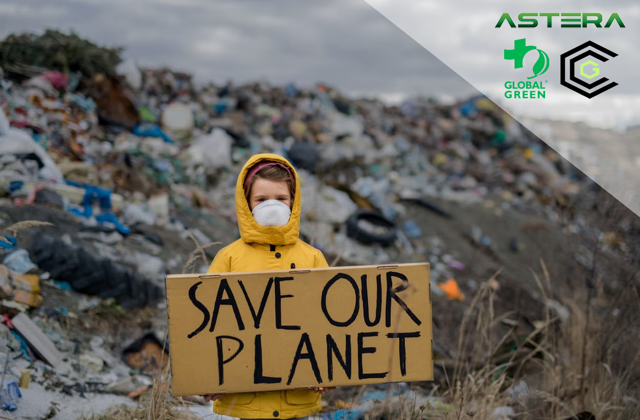MATT DE LA HOUSSAYE MAY 7, 2018
Global Green is seeking additional national partners from local governments, affordable housing agencies, private sector companies, community development corporations and tribal entities for the 2017 Food Waste Recovery Program.
Current Status and Challenges
Every year, over 37 million tons of food waste is incinerated or disposed of in landfills. The economic and nutritional value of this food is lost, negatively impacting the economy and the environment. Global Green has been working to identify strategies and technologies to reduce and recover food waste for the past six years. Through this work, we’ve identified both key innovations and persistent barriers to increased food waste reduction and recovery.
Some of the most significant barriers for the widespread adoption of food waste recovery and source reduction are the following:

1. Need to Engage and Mobilize More People in Efforts to Prevent Food Waste:
Engaging residents, particularly in multi-family buildings, in a resource recovery program requires continual reinforcement, which is resource-intensive for building owners and property managers. Additionally, the current tools and methodologies for accurately measuring the success of residential food waste reduction and diversion rates are early stage and based on a small number of case studies. Creating more effective programs will help build scale.

2. Greater Integration of Food Scrap Diversion and City Planning Efforts is Needed:
Both food waste processing facilities and users of compost are typically located at significant distances from the urban sources of waste generation. This misalignment creates cost inefficiencies and additional greenhouse gas emissions. Locating conventional food waste processing and composting facilities within urban areas also poses a number of permitting and community acceptance challenges.
Starting with reduction and donation, Global Green’s team is partnering with urban planners, city agencies and community groups to evaluate how food scraps from a specific neighborhoods can be recovered most efficiently through “Distributed Food Scrap Processing Infrastructure” and increasing the use of compost and other products made from food waste. Compost can provide a number of benefits to urban areas including carbon sequestration, improving soils for stormwater management and for building healthy soil.
How Can You Help?
Global Green is seeking to partner with 3-5 groups to advance organics diversion and more comprehensively incorporate this topic in sustainable city planning.

There are two ways to get involved:
1) Building and Empowering Citizen Climate Action:
Global Green is seeking to partner with cities to advise on setting up citizen ‘eco-ambassador’ programs. Our team has hosted webinars on this topic with partner cities and has piloted workshop trainings in California. We’re seeking to bring together additional partners to create pathways for expanded organics diversion in more apartments and cities.
Role of partners:
- Confirm interest in considering or starting up an eco-ambassador program partner’s city, real estate portfolio or community and establish desired timeline
- Provide information on any existing city-run, citizen-engagement sustainability program (if applicable) and areas in which partner and city would like to improve
How Global Green will help:
- Creation of a suggested standard methodology for the use of reporting technology and program citizen “ambassadors” in food waste measurement that is compatible with environmental goals and the operational needs of property managers.
2) Sustainable Cities: Building a Circular Economy for Organics Diversion
Our team will conduct an extensive review of existing plans and the existing pattern of food scrap processing. At the conclusion of the visit, the team will present recommendations for both physical and program best practice changes and scenarios for how to proceed with planning and development of food scrap infrastructure. Global Green will prioritize working with areas that include a community development or planning process underway in the community that can benefit from or integrate the recommendations (2).

Role of partners:
- Provide information on developments or urban districts such as a) soil specifications for development and infrastructure projects b) local zoning and permitting requirements for organic waste processing and c) the status of existing food scrap programs (if applicable)
How Global Green will help:
- Collaborate with partners to create up to 3 different scenarios for local food waste processing and consumption. Partners on this project can include landscape architects, builders, cities, and developers. When possible, we’re seeking to conduct webinars, workshops and/or pilot programs to demonstrate and evaluate solutions.
Additionally, good partners are organizations that have expressed an interest in integrating compost use as part of resiliency, sustainability or community revitalization efforts.
Apply for 2018 Food Waste Processing Infrastructure Planning Technical Assistance in your city!
For more information:

Global Green’s food waste prevention and recycling outreach materials
Ensuring Sustainability: The Best Practices in Ambassador Style Programs
Compost Opportunity Video Series
Multi-Family Units/ Apartment Guide to Compost Use
Real Estate & Sustainable Soil Management
(1) With the distributed food scrap processing “infrastructure” work, we’re seeking to work in areas primarily where there is “little or no” existing food scrap-processing infrastructure. By comparison with compost and sustainable soil management, we’re seeking to work with any city or organization that is interested.




